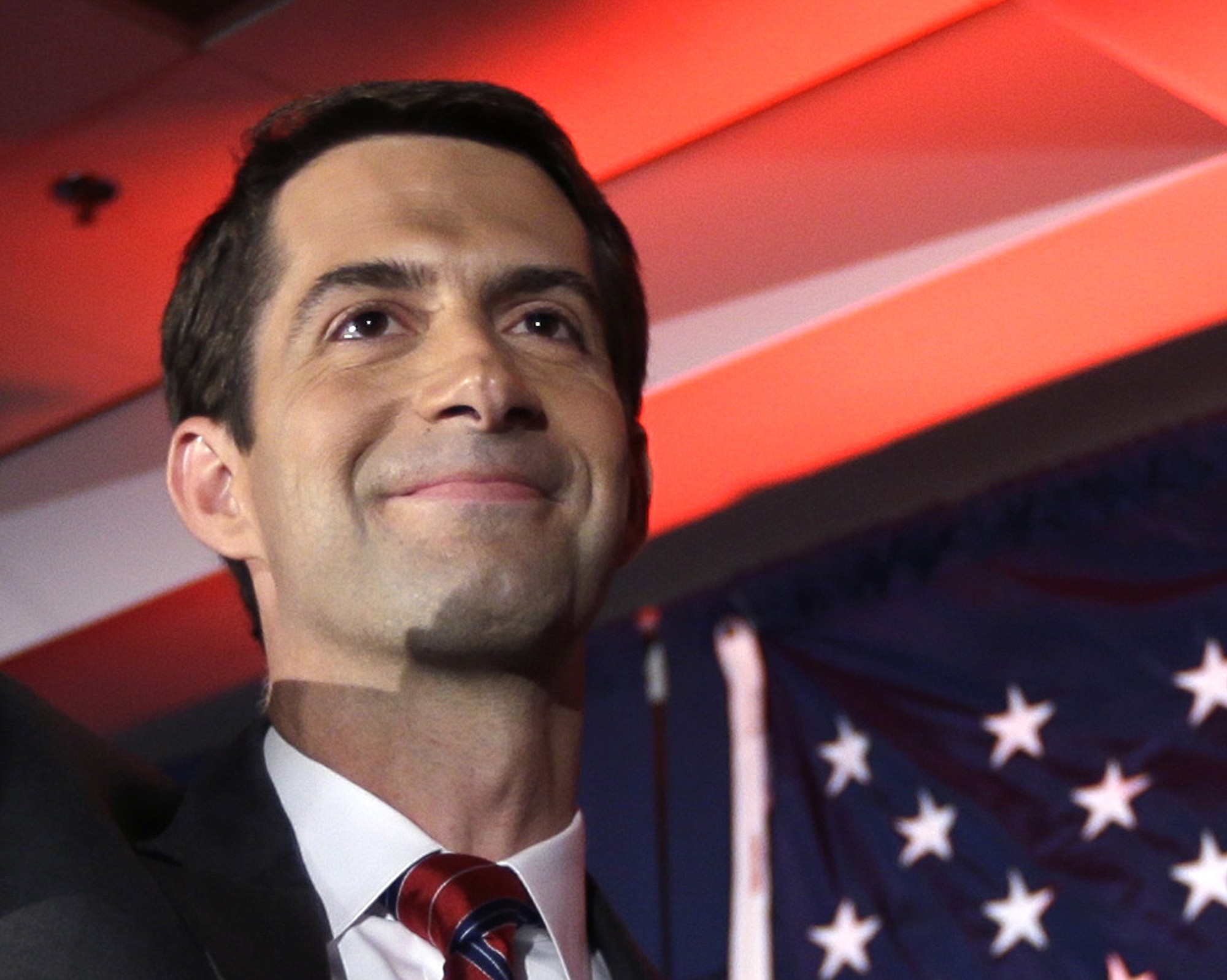WASHINGTON — Senate Democrats said Tuesday that the GOP letter about nuclear talks with Iran undercuts the U.S. at the negotiating table and threatens to torpedo bipartisanship on Capitol Hill when it comes to the delicate issue of preventing a nuclear-armed Iran.
Former Secretary of State Hillary Rodham Clinton also weighed in, saying Republicans were either trying to help the Iranians or hurt President Barack Obama.
As negotiators rush to reach an accord with Iran by the end of the month, partisan bickering continued on Capitol Hill, prompting Democratic Sen. Tim Kaine of Virginia to ask, rhetorically: “Is the Senate capable of tackling challenging national security questions in a mature and responsible way?”
Kaine said the letter freshman Sen. Tom Cotton, R-Ark., wrote to the leaders of Iran amounted to a partisan “sideshow.”
The letter, signed by 47 of the Senate’s 54 Republicans, including members of the leadership and potential presidential candidates, warned that unless Congress approved it, any nuclear deal they cut with Obama could expire the minute he leaves office.
The U.S. and five other nations are working to craft an agreement that would prevent Iran from being able to develop nuclear weapons. Tehran insists its nuclear work is peaceful. Republicans worry that Iran is not negotiating in good faith and that a deal would be insufficient and unenforceable, allowing Iran to eventually become a nuclear-armed state.
Cotton denied undermining Obama’s negotiating position. Appearing on MSNBC, he said, “We’re making sure that Iran’s leaders understand that if Congress doesn’t approve a deal, Congress won’t accept a deal.” He accused Iran of seeking “a nuclear umbrella so they can continue to export terrorism around the world.”
Iranian Foreign Minister Mohammed Javad Zarif was quoted by the website of Iranian state TV on Tuesday as saying the letter’s warning that any nuclear deal could be scrapped once Obama leaves office suggests the United States is “not trustworthy.” He called the letter “unprecedented and undiplomatic.” Earlier, he had dismissed it as a “propaganda ploy.”
Senate Majority Leader Mitch McConnell defended the letter.
“If there is not a deal, we’ve had some of our Democratic friends say the choice is between this deal and war,” he told reporters. “No, the choice is between this deal and greater sanctions because we’ve finally discovered one thing that works.”
In a news conference on another issue, Clinton wondered aloud about the purpose of the letter.
“There appear to be two logical answers: Either these senators were trying to be helpful to the Iranians or harmful to the commander-in-chief in the midst of high-stakes international diplomacy,” Clinton said. “Either answer does discredit to the letter’s signatories.”
Sen. Dianne Feinstein, D-Calif., top Democrat on the Senate Intelligence Committee, said the GOP letter weakens the American position because it “shows division.”
“Everything is done to attack,” Feinstein said about Congress. “And that’s not what our government should be.”
In remarks on the Senate floor, Sen. Dick Durbin, D-Ill., pronounced the letter reckless, much as it would have been for U.S. lawmakers to “reach out to the Vietnamese” a generation ago. He said he hoped it would not cause the negotiations to fail.
Democrats didn’t always agree with President George W. Bush’s foreign policy decisions, but Sen. Bill Nelson, D-Fla., said he would have never contemplated writing such a letter when Bush was in office. “You can disagree and you can disagree without being disagreeable about issues,” Nelson said.
Kaine spoke about what he called a “rigorously bipartisan” bill — authored by Republican Sen. Bob Corker of Tennessee and Democratic Sen. Bob Menendez, the chairman and ranking member of the Senate Foreign Relations Committee — to allow Congress to review any final agreement with Iran.
Corker, one of seven Republicans who did not sign the letter, also lamented the discord.
“There are a lot of frustrations no doubt around the Iran issue and I hope we can move beyond some of the drama to focus, if there’s a deal, on its content,” Corker said. “But also to make sure that Congress has an appropriate role.”



